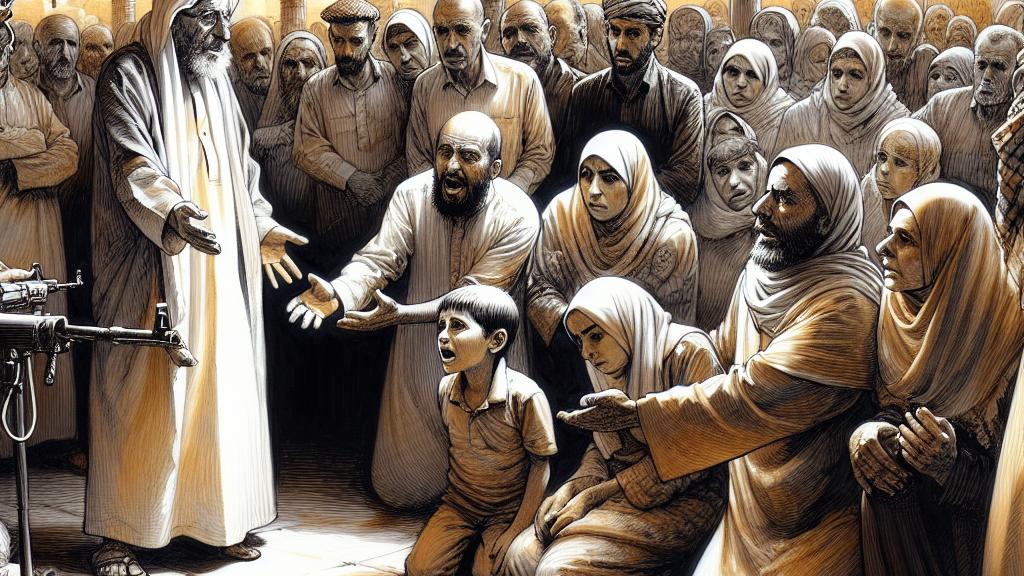Hope Amidst Despair: Families of Gaza Hostages Await Ceasefire Breakthrough
Overview
- Families of hostages in Gaza continue to seek resolution after enduring over 300 days of captivity.
- Israeli Prime Minister Netanyahu faces increasing scrutiny and pressure regarding hostage negotiations.
- Current ceasefire discussions present a critical opportunity for the safe return of hostages amidst rising tensions.

Relentless Advocacy by Families in Crisis
In Israel, families of hostages taken by Hamas during the violent attacks on October 7, 2023, are enduring profound pain as they strive for a resolution in the ongoing ceasefire discussions. Over the past 300 days, these families have passionately rallied public support and lobbied political leaders, hoping to secure the release of their loved ones. This situation has captured the attention of the nation, provoking deep empathy and increasing frustration toward Prime Minister Benjamin Netanyahu's government for what many consider a slow and inadequate response. As grave reports of over 40,000 Palestinian casualties circulate, urgency mounts not only for humanitarian reasons but also as families face the cruel reality that time for their loved ones is running out.
Netanyahu's Political Dilemmas and Public Pressure
As the hostage crisis unfolds, Prime Minister Netanyahu is embroiled in political challenges that complicate the government’s response. He insists that ongoing military pressure is the best course for securing hostage releases, a position that alienates many families who feel their loved ones are being politicized amidst ongoing conflict. Critics argue that Netanyahu's focus on political survival—especially amid threats from far-right allies who oppose releasing Palestinian prisoners—further endangers the hostages' lives. This dilemma is aggravated by rising regional tensions, particularly with militant groups like Hezbollah and Iran, creating a precarious environment that underscores the urgent need for actionable diplomacy aiming for both the hostages' freedom and broader peace.
Negotiation Hopes and Implications for Hostages
With the current ceasefire negotiations taking place in Doha, families cling to hope for a potential breakthrough that could lead to the safe return of hostages. Despite the release of some hostages in previous agreements, about 110 still remain captive, raising alarms about their safety as military operations escalate. Families are united in urgent calls for government action, recognizing that this stalemate may be a critical juncture in resolving both their plight and the ongoing conflict. The potential consequences of continued military engagement are severe, as any miscalculation could lead to further hostage casualties. Thus, these families passionately advocate for swift, compassionate negotiations that place human lives above political machinations, echoing through rallies and public appeals as they seek to end this nightmare.

Loading...